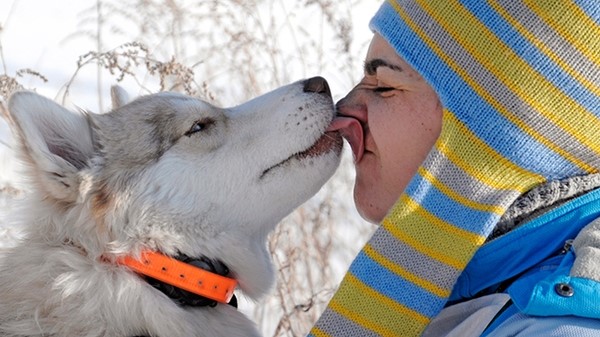Indice
“Man’s best friend,” is one of the many ways in which dogs are defined, who are not only loyal companions, but also extremely friendly and loving to those humans who are dear to them.
But all this brings up the question of why dogs are so friendly with humans? Is it due to domestication or a natural behavior in their genes? The attitude of dogs towards humans is both curious and mysterious; it is not until the appearance of the study carried out by scientists from Princeton University, that a clearer and more precise idea of the reason for the friendly behavior of dogs towards humans could be given.
The study by Bridgett M. von Holdt and her colleagues at Princenton
Bridgett M. von Holdt is an evolutionary biologist at Princeton University, who has devoted several of her research projects to delving into what makes a dog what it is. His most recent research, conducted with colleagues at Princeton University and lasting approximately three years, has focused on studying the underlying genetic basis for social behavior in dogs and wolves.
This study, published in Science Advances, showed that dogs, compared to domesticated wolves raised in similar circumstances, are more sociable and attentive to humans, and respond to instructions and commands more effectively. Digging deeper into the potential genetic basis for these differences, it was discovered that hypersocial dogs have variants of two genes called GTF2I and GTF2IRD1.
In humans, deletion of these two genes results in Williams-Beuren syndrome, which is characterized by specific facial features, cognitive difficulties and a high level of sociability and extroversion. For von Holdt, it is as if a “behavioral syndrome” has been created in companion animals, based on the suspicion that genetic variants in dogs inhibit their normal function, resulting in problems similar to those seen in humans with Williams-Beuren syndrome.
In addition to this, and as a complement and trigger for this research, in 2010 von Holdt together with Monique Udell, an animal behaviorist at Oregon State University, studied the genomes of dogs and wolves. Where they identified alterations in the WBSCR17 gene that occurred during the domestication of dogs.
Analysis of these elements, in combination with genetic and behavioral data, led to the conclusion that changes in these regions of the genome drove the wolves to become the human-loving dogs known today.
Future research
The research findings of evolutionary biologist Bridgett M. von Holdt and her colleagues at Princeton are not yet strong enough to be considered 100 percent valid, according to the University of Pennsylvania.
However, their genetic analysis holds the key to answering the question of why dogs are so friendly with humans, and future research is expected to help us learn more about the curious human-dog relationship and the complex evolution of these animals.
Image courtesy of (www.sophimania.pe), all rights reserved.








